“Maybe not,” Yuen replied. “I’m only halfway through a proof, but I’m 90 percent sure that Tim’s method is asymmetrical. It only works in one direction. Even if we’d told them about it, they couldn’t have turned it against us.”
I opened my mouth to argue, but if Yuen was right that made perfect sense. The far side had probably been working on the same branch of mathematics for centuries; if there had been an equivalent weapon that could be used from their vantage point, they would have discovered it long ago.
My machine had synchronized with Campbell’s, and it took over the assault automatically. We had no real idea what we were hitting, except that the propositions were further from the border, describing far simpler arithmetic on the dark integers than anything of ours that the far side had yet touched. Were we crippling machines ? Taking lives ? I was torn between a triumphant vision of retribution, and a sense of shame that we’d allowed it to come to this.
Every hundred meters or so, I passed another car sitting motionless by the side of the highway. I was far from the only person still driving, but I had a feeling Kate wouldn’t have much luck getting a taxi. She had water in her backpack, and there was a small shelter at the spot where we’d parked. There was little to be gained by reaching my office now; the laptop could do everything that mattered, and I could run it from the car battery if necessary. If I turned around and went back for Kate, though, I’d have so much explaining to do that there’d be no time for anything else.
I switched on the car radio, but either its digital signal processor was too sophisticated for its own good, or all the local stations were out.
“Anyone still getting news?” I asked.
“I still have radio,” Campbell replied. “No TV, no internet. Landlines and mobiles here are dead.” It was the same for Alison and Yuen. There’d been no more reports of disasters on the radio, but the stations were probably as isolated now as their listeners. Ham operators would still be calling each other, but journalists and newsrooms would not be in the loop. I didn’t want to think about the contingency plans that might have been in place, given ten years’ preparation and an informed population.
By the time I reached Penrith there were so many abandoned cars that the remaining traffic was almost gridlocked. I decided not to even try to reach home. I didn’t know if Sam had literally scanned my brain in Shanghai and used that to target what he’d done to me then, and whether or not he could use the same neuroanatomical information against me now, wherever I was, but staying away from my usual haunts seemed like one more small advantage to cling to.
I found a gas station, and it was giving priority to customers with functioning cars over hoarders who’d appeared on foot with empty cans. Their EFTPOS wasn’t working, but I had enough cash for the gas and some chocolate bars.
As dusk fell the streetlights came on; the traffic lights had never stopped working. All four laptops were holding up, hurling their grenades into the far side. The closer the attack front came to simple arithmetic, the more resistance it would face from natural processes voting at the border for near-side results. Our enemy had their supercomputers; we had every atom of the Earth, following its billion-year-old version of the truth.
We had modeled this scenario. The sheer arithmetical inertia of all that matter would buy us time, but in the long run a coherent, sustained, computational attack could still force its way through.
How would we die? Losing consciousness first, feeling no pain? Or was the brain more robust than that? Would all the cells of our bodies start committing apoptosis, once their biochemical errors mounted up beyond repair? Maybe it would be just like radiation sickness. We’d be burned by decaying arithmetic, just as if it was nuclear fire.
My laptop beeped. I swerved off the road and parked on a stretch of concrete beside a dark shopfront. A new icon had appeared on the screen: the letter S.
Sam said, “Bruno, this was not my decision.”
“I believe you,” I said. “But if you’re just a messenger now, what’s your message?”
“If you give us what we asked for, we’ll stop the attack.”
“We’re hurting you, aren’t we?”
“We know we’re hurting you ,” Sam replied. Point taken: we were guessing, firing blind. He didn’t have to ask about the damage we’d suffered.
I steeled myself, and followed the script the cabal had agreed upon. “We’ll give you the algorithm, but only if you retreat back to the old border, and then seal it.”
Sam was silent for four long heartbeats.
“Seal it?”
“I think you know what I mean.” In Shanghai, when we’d used Luminous to try to ensure that Industrial Algebra could not exploit the defect, we’d contemplated trying to seal the border rather than eliminating the defect altogether. The voting effect could only shift the border if it was crinkled in such a way that propositions on one side could be outnumbered by those on the other side. It was possible—given enough time and computing power—to smooth the border, to iron it flat. Once that was done, everywhere, the whole thing would become immovable. No force in the universe could shift it again.
Sam said, “You want to leave us with no weapon against you, while you still have the power to harm us.”
“We won’t have that power for long. Once you know exactly what we’re using, you’ll find a way to block it.”
There was a long pause. Then, “Stop your attacks on us, and we’ll consider your proposal.”
“We’ll stop our attacks when you pull the border back to the point where our lives are no longer at risk.”
“How would you even know that we’ve done that?” Sam replied. I wasn’t sure if the condescension was in his tone or just his words, but either way I welcomed it. The lower the far side’s opinion of our abilities, the more attractive the deal became for them.
I said, “Then you’d better back up far enough for all our communications systems to recover. When I can get news reports and see that there are no more planes going down, no power plants exploding, then we’ll start the ceasefire.”
Silence again, stretching out beyond mere hesitancy. His icon was still there, though, the S unblinking. I clutched at my shoulder, hoping that the burning pain was just tension in the muscle.
Finally: “All right. We agree. We’ll start shifting the border.”
I drove around looking for an all-night convenience store that might have had an old analog TV sitting in a corner to keep the cashier awake—that seemed like a good bet to start working long before the wireless connection to my laptop—but Campbell beat me to it. New Zealand radio and TV were reporting that the “digital blackout” appeared to be lifting, and ten minutes later Alison announced that she had internet access. A lot of the major servers were still down, or their sites weirdly garbled, but Reuters was starting to post updates on the crisis.
Sam had kept his word, so we halted the counter-strikes. Alison read from the Reuters site as the news came in. Seventeen planes had crashed, and four trains. There’d been fatalities at an oil refinery, and half a dozen manufacturing plants. One analyst put the global death toll at five thousand and rising.
I muted the microphone on my laptop and spent thirty seconds shouting obscenities and punching the dashboard. Then I rejoined the cabal.
Yuen said, “I’ve been reviewing my notes. If my instinct is worth anything, the theorem I mentioned before is correct: if the border is sealed, they’ll have no way to touch us.”
“What about the upside for them?” Alison asked. “Do you think they can protect themselves against Tim’s algorithm, once they understand it?”
Читать дальше

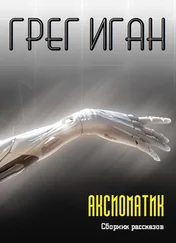
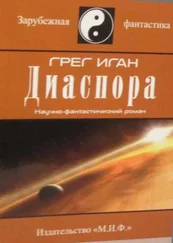
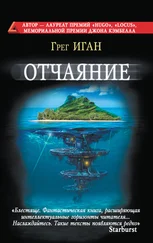
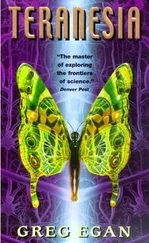
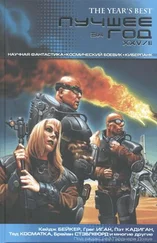
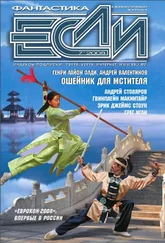
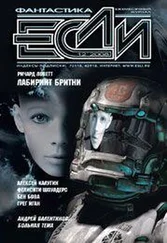
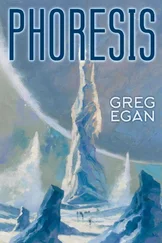
![Грег Иган - Рассказы [компиляция]](/books/419837/greg-igan-rasskazy-kompilyaciya-thumb.webp)
